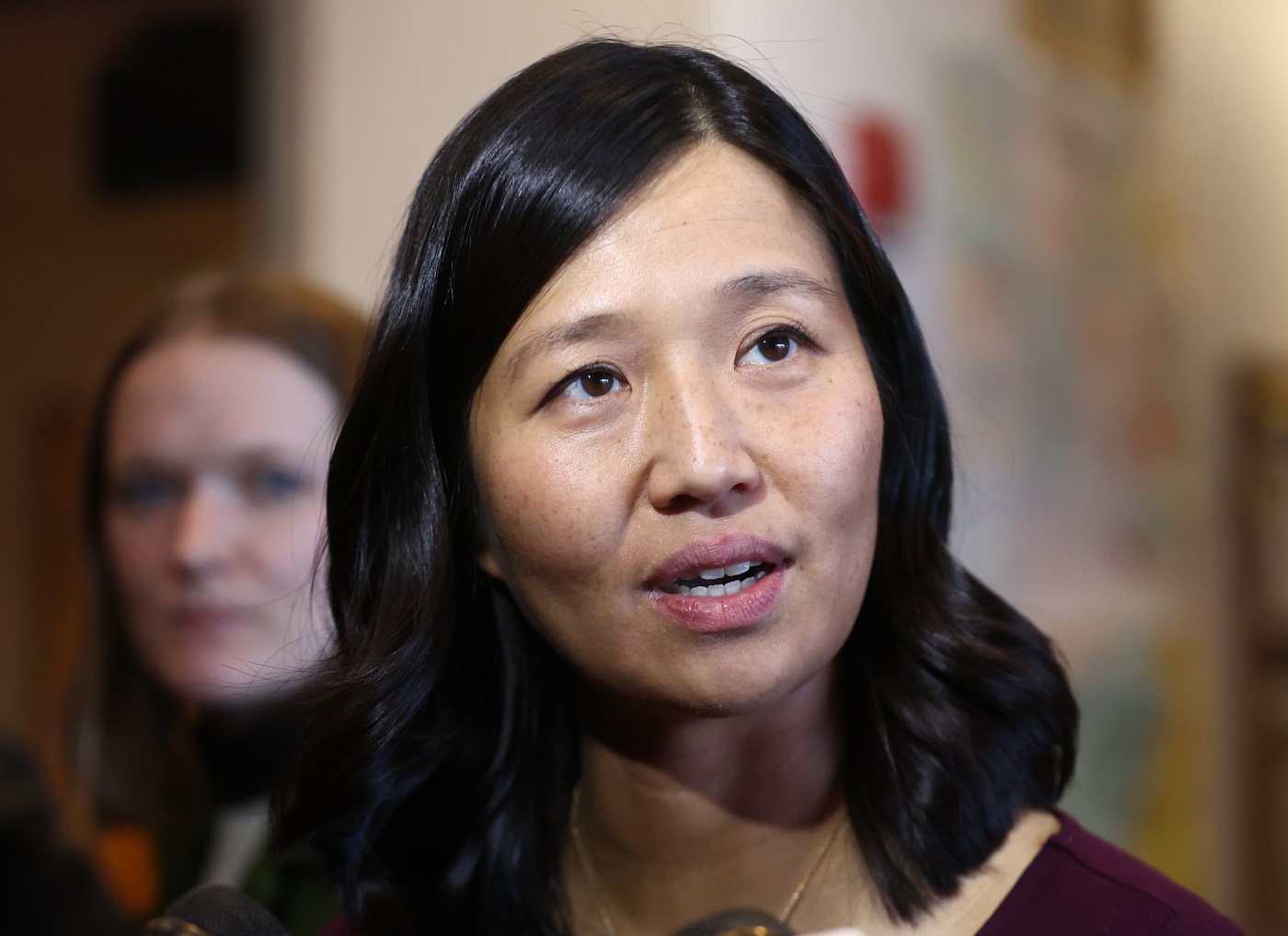
Round 3: Boston City Council set to vote on Mayor Wu’s tax shift legislation Wednesday
The Boston City Council is expected to vote this week on a mayoral home rule petition that seeks to alter property tax rates set by the city in a way that would tax businesses at a higher rate to provide relief for homeowners grappling with steep increases.
The proposal before the Council marks a third effort by the mayor’s office to push through the controversial legislation, which died twice last year amid intense opposition on Beacon Hill.
Councilor Gabriela Coletta Zapata, who chairs the subcommittee that held a hearing on Mayor Michelle Wu’s expanded tax shift home rule petition last month, said in a five-page report that she plans to bring the proposed legislation forward for a vote on Wednesday.
“As chair of the Committee on Government Operations, I recommend moving the listed docket from the committee to the full Council for discussion and formal action,” Coletta Zapata wrote. “At this time, my recommendation to the full Council will be that this matter ought to pass in a new draft.”
The City Council will be voting on an amended version of the mayor’s home rule petition, which, if approved, would give the city the authority to shift more of its property tax burden from the residential to commercial sector, beyond what is allowed by state law, for three years.
The petition seeks to lower the residential tax rate approved by the City Council last December, from $11.58 to $11.03 per $1,000 of value, and increase the commercial tax rate set by the body, from $25.96 to $26.92 per $1,000 of value.
The change in tax rates would be based on a 181.5% shift in the city’s tax burden from the commercial to residential sector. The current rates are based on the state’s 175% limit. The maximum tax shift would decrease to 180% and 178% in the second and third years of the mayor’s proposed home rule petition.
The Council’s amendment centers around the city’s backup plan, which is to petition lawmakers for the authority to issue rebates to homeowners should the Legislature not approve a retroactive change in this year’s tax rates by March 1.
Per the amendment, the City Council would be given oversight of any rebates issued by the city, including by setting and voting on the amounts, “to ensure a fiscally responsible approach to tax relief,” Coletta Zapata’s report states.
The Wu administration has said that rebates would be paid through surplus funds and that homeowners who received this year’s residential exemption would be eligible.
The amendment also prohibits the issuance of rebate payments, should the requested appropriation negatively impact budgetary funds the city has to draw from to “help manage current or future risks,” as stated in the report.
The City Council has approved two prior versions of the mayor’s tax shift home rule petition, but this is the first to feature rebates as a backup plan.
The past two bills were also approved by the state House of Representatives but stalled in the Senate, where South Boston Democrat Nick Collins blocked the most recent version three times before Senate President Karen Spilka officially killed it.
Critics of the plan have cited concerns with how it would further burden a struggling commercial sector, which is grappling with changes in post-pandemic work patterns that have led to empty office space and decreased property values.
Senators who helped to kill the mayor’s second tax shift legislative push in December also argued that late valuation certifications revealed that residential property tax spikes would not be as dire as the city had been projecting.
Other criticism centered on the mayor’s refusal to cut from a $4.6 billion city budget that grew by 8% in the current fiscal year.
Mayor Wu has maintained that the legislation is necessary, pointing to steep tax increases homeowners were hit with in their third-quarter tax bills, as reason to try again on the temporary change in state tax law following past failed attempts.
Wu has said the average single-family homeowner saw a 21% quarterly increase in their property tax bills last month, while struggling senior homeowners who have been pushing for the tax relief measure reported being “shocked” by spikes that, in some cases, exceeded 40%.
While the Wu administration has pointed to falling commercial property values as a key factor that is pushing more of the city’s tax burden onto homeowners, the city’s varying assessment process has been cited more recently as contributing to this year’s hefty tax hikes.
Councilors focused heavily on the city’s assessment process in last month’s tax classification committee hearing.
City assessment data shared by Councilor John FitzGerald showed residential property value increases were much higher this year in working-class neighborhoods like Dorchester and Roxbury, where spikes ranged from 10.2% to 13.2%, compared to wealthier areas like Back Bay, where values rose on average by 4.66%.
Related Articles
Ex-city councilor Michael Flaherty to receive $253K severance after dismissal from Boston Water and Sewer
Pols & Politics: Michelle Wu, Josh Kraft make moves as race for Boston mayor kicks off
Boston mayoral candidate Josh Kraft backtracks on rent control, saying his plan would be optional
Flushed: Public records reveal staff turmoil with Michael Flaherty out, embattled HR director suspended at Boston Water and Sewer
Pam Bondi freezes DOJ funding for sanctuary cities, as Michelle Wu gets date to testify in front of Congress
The mayor’s home rule petition would provide targeted tax relief to small businesses impacted by a shift in the city’s tax burden. It also includes changes from prior versions that would expand the senior homeowner tax exemption and require “periodic” review of the tax classification change through a sunset clause.
In her report, Coletta Zapata quoted the Wu administration as choosing to include the sunset clause “to address concerns from state legislators regarding permanent tax shifts and to allow for adjustments based on economic conditions.”
“The administration,” she wrote, “stressed that the new petition aligns more closely with statewide tax policies, making it more likely to gain approval at the State House.”
City Councilor Gabriela Coletta Zapata. (Chris Christo/Boston Herald, File)


